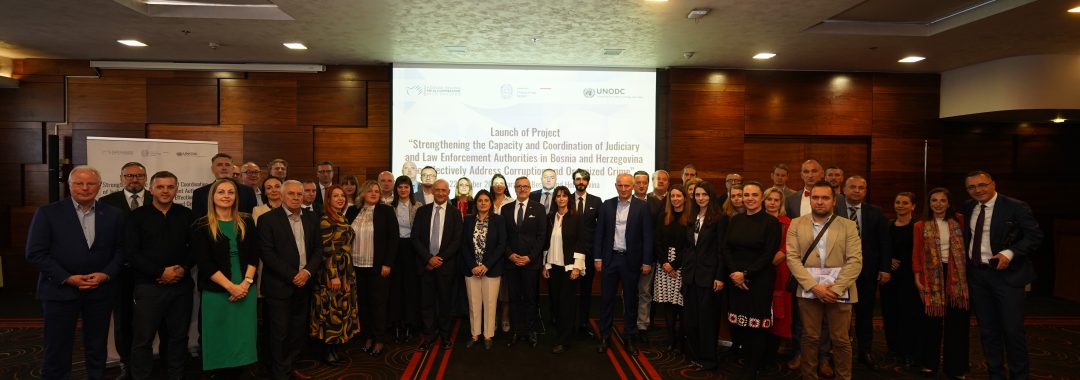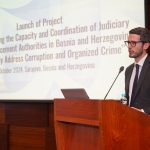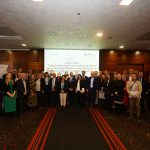Sarajevo, 22 October 2024 – The United Nations Office on Drugs and Crime (UNODC) and the Italian Agency for Development Cooperation (AICS), in partnership with the Agency for the Prevention of Corruption and Coordination of the Fight against Corruption (APIK) and other relevant public institutions, held a kick-off event for a new technical assistance program to strengthen the rule of law with a focus on addressing corruption and organized crime in Bosnia and Herzegovina (BiH).
The 3-year project, which is funded by the Italian Agency for Development Cooperation (AICS), will focus on strengthening the capacity and coordination of judiciary and law enforcement in BiH to effectively prevent and fight corruption and economic crime.
“The fight against corruption is central to Bosnia and Herzegovina’s path toward European Union accession”, stated H.E. Ms. Danka Savić, Ambassador and Permanent Representative of Bosnia and Herzegovina to the UN in Vienna, at the launch event, which brought together representatives from relevant governmental institutions, justice sector and law enforcement agencies, international partners, and civil society organizations. “Tackling corruption is not just a legal obligation but a critical challenge that must be overcome to bring our country closer to the European family. This requires not only the passage of new laws but also, more importantly, their consistent and effective implementation. Significant reforms will be needed, and we are fully committed to this demanding but necessary process”, Ambassador Savić noted.
The project will work with a wide range of institutions, such as APIK, the High Judicial and Prosecutorial Council and the entity-level Judicial and Prosecutorial Training Centres to support the development of modern training programs for criminal justice practitioners.
“UNODC has a longstanding commitment to support Member States in their efforts to prevent and counter corruption, particularly through the implementation of the UN Convention against Corruption. This Convention provides a robust legal framework for international cooperation, criminalization of corruption offences, asset recovery, and preventive measures. This project in Bosnia and Herzegovina will allow us to address those needs through a multi-agency approach that is designed according to national priorities and to be delivered in full collaboration with other sister agencies and international partners”, said Mr. Danilo Rizzi, UNODC Regional Representative for South-Eastern Europe.
Strengthening capacities to conduct financial investigations and engage in asset recovery is a key objective of the project. In addition, the project will support implementation of State-level anti-corruption and organized crime strategies and promote improved coordination among anti-corruption bodies, police, prosecutors and other relevant stakeholders.
As noted by H.E. Mr. Lorenzo Donatelli, Chargé d’affaires, representing the Embassy of Italy in Bosnia and Herzegovina, the project will “make the most of the experience of Italian judicial institutions and the National Anti-Corruption Authority to facilitate training and inter-institutional coordination for the benefit of the entire BiH judicial system”.
Ms. Stefania Vizzaccaro, Head of the Italian Agency for Development Cooperation Regional Office in Tirana, appreciated Bosnian institutions behavior, “that have shown a clear willingness to work together to create a stronger legal system, playing a role not only as beneficiaries but also as active actors in the reform process, which is essential to achieve our shared ambitions of transparency, integrity and justice“.
In this manner, the project will contribute to the fulfilment of EU accession requirements in relation to the fight against corruption and organized crime, support implementation of the United Nations Convention against Corruption, to which Bosnia and Herzegovina is a State Party, and promote achievement of the Sustainable Development Goals, in particular SDG 16 on peace, justice and strong institutions.






